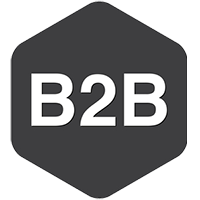Pure deepens Fusion as reorientation to storage for AI continues | Computer Weekly
 marchello74 - stock. adobe. com
marchello74 - stock. adobe. com
Pure Storage will upgrade its Fusion control plane to make storage capacity across its arrays available via storage classes that allow it to be easily provisioned to whichever application needs it, in particular artificial intelligence (AI) workloads.
That’s one key announcement at Pure Storage’s Accelerate event in Las Vegas this week that targets storage for AI or uses AI.
Also announced is AI Copilot, which will allow natural language technical support of Pure arrays.
There is also Evergreen//One for AI, in which Pure aims to guarantee storage performance based on bandwidth requirements of graphics processing unit (GPU) clusters and based on a service-level agreement (SLA).
Pure also launched Secure Application Workspaces for Containers, which combines secure multi-tenancy with policy-based governance and Kubernetes container management to allow integrations between mission-critical data and AI clusters.
In addition, Pure said it expected Nvidia DGX SuperPod certification in the second half of 2024. Pure is already certified on Nvidia DGX BasePod and OVX.
CEO Charles Giancarlo said he sees Pure as moving towards being “a data management storage platform”.
Giancarlo said: “Currently, if you need storage you have to put in a request with IT. Now Fusion will allow IT to set up APIs [application programming interfaces] that expose storage classes so that this becomes self-service. ”
Here, Pure has in mind the storage class concept used in Kubernetes in which storage of different performance profiles is made available to containerised environments.
Fusion already allowed the creation of pools of storage capacity across Pure arrays of the same product type – for example, file or block – but now functionality has been made backwards compatible so all block and file storage can be accessed and managed from one array across the entire fleet.
That feature set will be available for block and file during 2024, with object storage to follow “in future”.
Fusion was introduced in 2021 as a control layer that manages storage across on-site, cloud and colo locations.
Giancarlo said developing backwards compatibility for Fusion had been a challenge that had taken some time, but it means “you can go to any array and control any array anywhere, so, you don’t have to have arrays dedicated to AI – you should be able to ensure all storage is accessible for AI”.
He added: “Enterprise IT managers want flexibility and to be able to move data. APIs would allow IT to define when, how and under what circumstances data would be moved. It will allow multiple workloads per array and for movement of data while retaining its storage class. ”
Pure’s vice-president and general manager for core products, Shawn Hansen, said the addition to Fusion addresses the pace of change in enterprise storage.
“There are large fleets, multiple domains and multiple workloads,” said Hansen. “Now Fusion will allow storage to be managed from all arrays and all locations. ”
Speaking about its development, he said: “It was really hard to develop a single control plane for multiple protocols, transports [and] locations. We’d done it for new arrays, for clean arrays, but we realised we needed the functionality for existing arrays and datasets. ”
All the new functionality in Fusion will come with no addition to the licence and as an update. “It’ll feel like magic,” said Hansen.
Meanwhile, said vice-president and general manager of digital services, Prakash Darji, AI Copilot’s natural language support capability is built on GPT-4 and a corpus of training data that includes 25PB (petabytes) of telemetry from Pure’s Pure1 platform. It also comprises Pure’s knowledge base of product documentation, hardware management application programming interface (API) commands and support history.
The plan is that further information will go towards further training so that customers get a richer experience.
Copilot is currently in tech preview with customers.
New SLAs for Evergreen//One include a security assessment with fleet-level monitoring and recommendations, enhanced anomaly detection for ransomware and a yearly site rebalance that allows customers to consolidate or reallocate unused capacity across sites.


 Advertising on our project is a great way to promote a brand and attract new customers for your company!
Advertising on our project is a great way to promote a brand and attract new customers for your company!  AUD: 0.6659 $
AUD: 0.6659 $  CAD: 0.7307 $
CAD: 0.7307 $  CHF: 1.1152 $
CHF: 1.1152 $  CNY: 0.1376 $
CNY: 0.1376 $  EUR: 1.0689 $
EUR: 1.0689 $  GBP: 1.2657 $
GBP: 1.2657 $  JPY: 0.0062 $
JPY: 0.0062 $  RUB: 0.0114 $
RUB: 0.0114 $ 




























